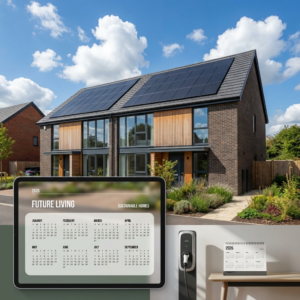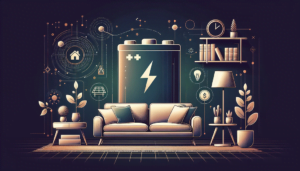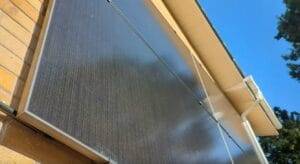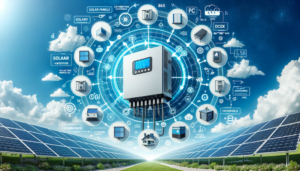The Effects on Lifestyle as a Home Solar Energy System Owner. Learn About Solar Panel Angles and Wiring, Home Battery Storage, ROI and Hedge Against Price Hikes

For years, installing a home solar energy system has been a recurring thought for me. In the early days, I was renting and this aspiration was unattainable. The idea gained real traction after acquiring a property with enough space for solar panels. This renewed interest coincided with what ended up being a staggering 400% increase in energy prices in the UK. The financial sense made the decision even more compelling and the never-ending energy price hikes provided the required degree of urgency for me to go ahead with the installation.
Financial Benefits and ROI Scenarios
The financial advantages of a home solar energy system are particularly significant in the UK, where flexible energy tariffs are available. By calculating your power production, size of the solar panels , and placement, you can determine various Return on Investment (ROI) scenarios. Given the fluctuating energy costs, the ROI period could become longer if they fall. However, the ROI on your investment in home solar improves significantly as it hedges you against future price hikes.
Heightened Energy Awareness and Base Load
Installing a home solar energy system elevates your understanding of your household’s energy needs, particularly your base load , which includes constantly running appliances like fridges and routers. Understanding your base load serves as a strategic tool for several reasons:
- It informs the sizing of your solar panels and battery storage.
- It aids in financial planning, especially in leveraging flexible energy tariffs.
- It’s crucial for future-proofing your system as your household needs evolve.
- It provides more accurate ROI scenarios.
This heightened awareness sets the stage for a more efficient, cost-effective, and future-proof solar energy system.
Weather Conditions and Solar Panel Efficiency
In the UK, weather conditions can be a double-edged sword for {{ <inref “solar-myths” “solar panel performance.”> }}
While overcast days might seem like a drawback, modern high-level components are designed to capture diffused sunlight effectively. Moreover, optimising the placement and tilt angles based on weather considerations can optimise sunlight capture.
Additionally, upgrades such as Solar Power Optimisers can be installed to each panel to mitigate the effects of intermittent shade or clouds. Finally, home solar systems in the UK can be built with more PV power than your house needs to ensure you maintain some degree of power production even on less sunny days. This is a viable option as solar inverters can cope with the extra load if the panels are wired correctly and because solar panels are cheaper than ever.
DIY Possibilities and Safety Measures
While working with Direct Current (DC) can be risky, with the right knowledge and tools, many parts of a home solar energy system can be a DIY project. This saves on installation costs and provides a deeper understanding of your system. However, following safety tips and guidelines is crucial to ensure a safe installation. Safety is paramount, so if you are not a confident DIYer with experience in AC electric work, then this project is best left to the professionals. At least find a competent person to consult you and inspect your work.
Importance of Self-Reliance
If you’re hiring a professional installer, learning about your system is even more crucial. Once the installer leaves, you become the owner and the closest person to the system. Should it require minor adjustments or if something goes awry, you’ll be better equipped to make decisions without relying on external help. This is particularly important if your installer goes out of business or is unavailable for consultation.
Additionally, as an owner of the system, you will be best placed to make decisions on how to expand it. Knowing your system well can help you with decisions regarding purchasing or upgrading your home battery storage system, installing additional strings or even upgrading your inverter.
Beyond Financial Returns
Don’t view your solar energy system merely as a speculative investment expecting massive returns. There’s immense satisfaction in setting up a system that harnesses sunlight to power your home.
It’s not just about the ROI; it’s about building up a degree of independence from the grid, contributing to sustainability and the enjoyment of harvesting the fruits of your work and investment daily. Nevertheless, I am certain that that enjoyment will be yet again enhanced once you pass the point of breaking even and start consuming virtually free energy.
Regulatory Compliance
Meeting all UK-specific safety and building regulations is essential. You will need building controls notification for new circuits you install for your inverter and you will need a District Network Operator notification DNO. Hiring professionals for the notifiable work is essential. Additionally, consulting professionals is advisable, to ensure you meet all electrical safety standards, especially even if they are not notifiable.
Conclusion
Owning a home solar energy system in the UK is an eco-friendly choice and also a financially prudent one, given the fluctuating energy prices. It offers a tangible way to become more energy-aware, optimise consumption, enjoy the benefit of the sun daily and contribute to a more sustainable future.









